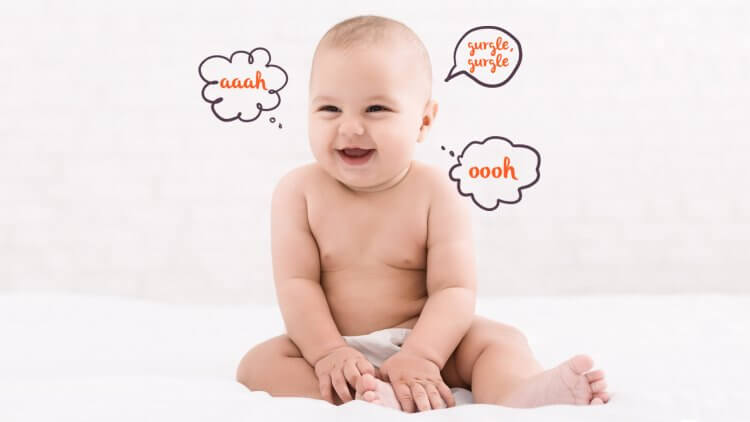As a new parent, every cooing sound your baby makes is music to your ears. From their first coos and gurgles, your little one is learning to communicate with you. Baby cooing is an important milestone in your baby’s early language development, and understanding the sounds your baby makes can help you to better respond to their needs.
 Source: bing.com
Source: bing.comTable of Contents
What is cooing?
Cooing is a type of vocalization that babies make in the early stages of their language development. These sounds are typically soft, vowel-like noises that are produced when a baby is content and relaxed. Cooing sounds are a sign that your baby is beginning to explore the world around them and is learning to communicate with you through sound.
When do babies start cooing?
Babies typically begin cooing around two months of age. At this stage, they are starting to develop their vocal cords and are beginning to experiment with making sounds. Over time, their coos will become more complex and varied, as they learn to control their vocalizations and use their tongue and lips to form different sounds.
Why is cooing important for baby development?
Cooing is a crucial milestone in your baby’s language development. By exploring the sounds they can make, babies are learning the building blocks of language. As they coo and babble, they are practicing the skills they will need to learn to speak and communicate effectively. Additionally, cooing is an important way for babies to bond with their caregivers and to develop a sense of trust and security.
How can you encourage your baby to coo?
There are many things you can do to encourage your baby’s cooing and language development. One of the most important things is to talk to your baby often, even if they are not yet able to talk back to you. Use simple, clear language and speak in a calm, soothing tone. You can also play games like peek-a-boo or sing songs with your baby, which can encourage them to make new sounds and interact with you.
What other milestones should you be looking for in your baby’s language development?
In addition to cooing, there are many other language milestones that you should be looking for in your baby’s development. These include:
- Babbling, or making more complex, consonant-vowel sounds
- Gesturing, such as pointing or waving
- Saying their first words, typically around 12 months of age
- Using two-word phrases, such as “bye-bye” or “more milk”
If you are concerned about your baby’s language development, it’s always a good idea to talk to your pediatrician. They can help you to identify any potential issues and provide you with resources and support to help your baby reach their language milestones.
Conclusion
Cooing is an important milestone in your baby’s language development. As your baby begins to explore the world of sound, they are learning the building blocks of language and communication. By talking to your baby often, playing games with them, and providing a nurturing environment, you can help to encourage their language development and set them on the path to successful communication.
So, next time your baby coos, take a moment to enjoy the sound and respond to their communication. Every coo is a step forward in their language development and a sign of their growing understanding of the world around them.
Frequently Asked Questions
What is the difference between cooing and babbling?
Cooing typically refers to the soft vowel-like sounds that babies make in the early stages of their language development. Babbling, on the other hand, involves more complex sounds that include both vowels and consonants. Babbling typically begins around 6 months of age.
What should you do if your baby is not cooing?
If your baby is not cooing by two months of age, it’s a good idea to talk to your pediatrician. They can help to identify any potential issues and provide you with resources and support to help your baby reach their language milestones.
Can you encourage your baby’s language development through play?
Yes! Play is a great way to encourage your baby’s language development. Simple games like peek-a-boo or singing songs can help to encourage your baby to make new sounds and interact with you.
When should your baby say their first words?
Most babies say their first words around 12 months of age. However, every baby is different, and some may begin speaking earlier or later than this. If you have concerns about your baby’s language development, it’s always a good idea to talk to your pediatrician.
What can you do to support your baby’s language development?
There are many things you can do to support your baby’s language development, including talking to them often, reading to them, and playing games that encourage communication. It’s also important to provide a nurturing environment that supports your baby’s learning and development.
